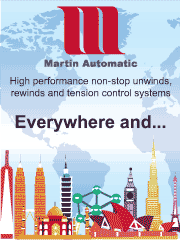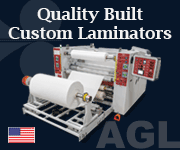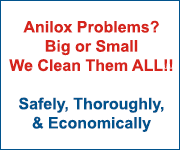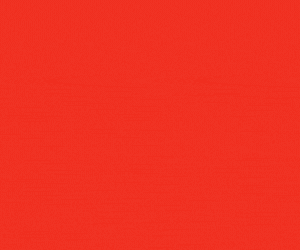Weight Reduction
- Published: September 01, 2008, By By Edward Boyle, Contributing Editor
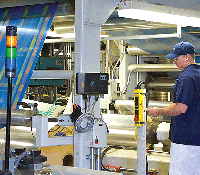
Coating Excellence Intl., a supplier of specialty flexible packaging, has made sustainable development an essential element of its business plan — and ultimately its business success — for the past decade. Company founder and CEO Mike Nowak says it has worked to the mutual benefit of both CEI and its customers.
“We work with our customers to give them the best packaging from a sustainability standpoint,” notes Nowak, who says reducing the weight of packaging has been central to those efforts. “The emphasis on downweighting has always been to save money. When a potential customer comes to us, we don't like to say, ‘Okay, we can make the same thing.’ We try to improve on it and give them a reason to buy from us, and downweighting the package is one way to do that.”
For example, the company developed a woven sack three years ago that has successfully reduced the weight of its finished bags by as much as 50% over the multiwall bags that traditionally have been used to package bulk items like pet foods. It subsequently results in reduced shipping costs for both CEI and its customers, and less waste is being generated during the converting process and ending up in landfills, says Nowak.
But that is just one part of CEI's extensive sustainability program. The company's website highlights more than nearly two dozen aspects of that program involving its products, production, process chemicals, recycling efforts, and shipping. All are designed to mitigate the impact of both its products and processes on the environment.
“We feel we're a leader in reducing product weight, making packaging that is recyclable, using recycled materials, and using renewable energy,” explains Nowak. “All of those things we feel can help our customers.”
Eco-Conscious from the Start
While “sustainability” is a relatively new concept to some in the industry, the idea of “meeting the needs of the present without compromising the ability of future generations to meet their own needs” has been around for more than two decades. Coating Excellence has been adhering to these basic principles since its founding in 1997.
“We've always focused on the keys to sustainability,” says Nowak. “It has since become very important to our company, our customers, and our industry.”
For example, in marked contrast to many flexible packaging converters, CEI never has used solvent-based inks, coatings, or adhesives in any facet of its converting operation. The use of water-based alternatives also has been a key element of its sustainability program.
Nowak notes that water-based inks and coatings were recognized universally as better for the environment and sustainability when he established Coating Excellence, “but you couldn't get the quality unless you were printing on paper.” Still, he invested in the necessary equipment and processes to deliver superior flexible packaging that met both the needs of its customers and the environment.
“Now, with all the emphasis on the environment and sustainability, we just think that water-based is a much better alternative than solvents,” he says. “It also has a lot less environmental impact from an emissions standpoint, so we look at all those kinds of things. It's kind of a shotgun approach, but if we can reduce numerous things from a sustainability standpoint, we think we're all better off.”
Computers in Control
Nowak says that while CEI's sustainability efforts have played at least a part in the company's success, its investment in state-of-the-art equipment and its dedication to developing new markets and product niches has been critical. That growth led to a recent 120,000-sq-ft expansion of its single converting site, bringing it to a total of more than 600,000 sq ft.
Nowak says another important aspect of its sustainability program is that each of its nearly two dozen pieces of capital equipment is computer controlled. Its eight Windmoeller & Hoelscher presses, for example, employ video detection systems from Advanced Vision Technology and BST Pro Mark that provide real-time monitoring of printed product, allowing defects to be addressed with minimal waste, and its three Egan/Davis-Standard extruders are computer controlled to precisely control film weights.
Its “very efficient” W&H flexo presses, says Nowak, print up to ten colors in widths from 44-77 in. using Sun Chemical inks and overcoats. CEI also operates a Nordmeccanica coater and 12 rewinders from Deacro Industries and Webco Engineering in widths from 60-120 in. While Nowak says most of his customers require rolls only 40-60 in., larger equipment allows CEI to deliver higher volumes of material more quickly and with less waste.
“The customers depend on us for innovative technology in manufacturing,” said Nowak. “Our competitive advantage always has been saving our customers money while increasing the quality of the final product. Our latest expansion accommodates new, state-of-the-art technology, custom designed for CEI to meet the requirements of our customers who prefer not to go offshore for their packaging.”
Poly Bags Are Super Strong
One of CEI's most recent developments, the “SuperTube” mesh bag for large packages of pet foods, has fueled its recent growth both in North America and overseas. Introduced in 2005, the single-polymer polypropylene bags met the company's goals of expanding its market share not only by competing on price but also developing innovative new products.
Among its advantages, the bags are half the weight of multiwall bags, resulting in cost savings with transportation, waste reduction, and waste disposal. The bags also are more easily recyclable than multiwall film/paper combinations. Nowak notes that in order to enhance point-of-purchase sales, retailers were drawn to the new bag that had a reverse-printed film laminated over a super strong mesh, rather than standard paper laminates. Those bags traditionally have been made overseas and shipped to the US for filling. CEI has successfully reversed that trend.
“The paper bags were a problem for our customers because some would break open during distribution or after they arrive at retail stores,” says Lynda Swenson, general manager of CEI's bag group. “Additionally, the quality and logistics of printing mesh bags offshore to save money created many production challenges for these customers.
“We were approached by customers to solve the problem by developing a higher quality package that could be manufactured in the United States at a substantial cost savings,” she adds. “This is really our specialty — to innovate new ideas in packaging and engage our equipment suppliers to create one-of-a-kind machines to do the job.”
Among its other product lines, CEI prints the paper used to convert more than two billion “pink” sugar packets a month. Some of those packets are customized for restaurant chains like Applebee's, in runs as little as 200,000 packets. “That may sound like a lot,” notes Nowak, “but it's really just 50 pounds of paper. Two billion (a month) is a lot of packets, but it's not enough to keep you in business.”
In spite of its size, CEI does convert runs as small as 25,000 bags or as little as 1,000 lb of film. Nowak says that because of the number of presses, slitters, and other capital equipment, the company can accommodate smaller runs, if only in anticipation that the volumes ultimately will grow as the end-user does.
Explains Nowak, “We hate to pass on something because you never know [where it might lead], he explains. “When a Coca-Cola comes along, you'd hate to say, ‘Gee, I passed on that one!’”
With Coating Excellence's newly expanded facility and continued dedication to sustainability, that isn't likely to happen any time soon.
Contributing Editor Edward Boyle, based in Reading, PA, has covered the converting industry for more than 24 years. Contact him at EJB Communications; 610-670-4680; ejbcomm@aol.com.
A Level Playing Field
One of Coating Excellence Intl.'s most notable achievements has been its success in selling woven bags. The company's efforts were enhanced, in part, by a US Dept. of Commerce ruling in January stating Chinese producers and exporters were dumping laminated woven sacks into the US market. Those products typically are used to package pet foods, birdseeds, and similar products at retail. CEI was one in a group of five flexible packaging companies that petitioned the department to initiate the investigation.
By a unanimous 6-0 vote in July, the US Intl. Trade Commission's affirmative decision on the petition means US importers of these products from China will be required to pay high (95% to 445%) duties to offset unfair pricing and Chinese government subsidies. This will restore fair competition in the US market, the ITC says.
Adds company founder Mike Nowak, “The ITC's decision confirms something that we have known for a long time — dumped and subsidized imports from China prevented us from getting this business off the ground. We now look forward to working closely with our customers to serve this growing market. This decision will allow us to expand capacity and create new jobs in Wisconsin.”
Nowak explains when CEI debuted its single polymer bags three years ago, “a lot of product was coming from overseas. That's when we decided to get into the market, because now we can use both our extrusion lamination expertise, as well as our high-quality printing, to our advantage. When there's a level playing field, we feel that if you invest in the right assets to improve your profitability, then you should be able to compete.”
Converter Info
-
Coating Excellence Intl. | 975 Broadway, Wrightstown, WI 54180 | 920-996-1900 | www.coatingexcellence.com
Supplier Info
-
Windmoeller & Hoelscher Corp. | www.whcorp.com
PFFC-ASAP 315 -
Advanced Vision Technology | www.avt-inc.com
PFFC-ASAP 316 -
BST Pro Mark | www.bstpromark.com
PFFC-ASAP 317 -
Egan/Davis-Standard | www.davis-standard.com
PFFC-ASAP 318 -
Sun Chemical | www.sunchemical.com
PFFC-ASAP 319 -
Nordmeccanica | www.nordmeccanica.com
PFFC-ASAP 320 -
Deacro Industries | www.deacro.com
PFFC-ASAP 321 -
Webco Engineering | www.webcoeng.com
PFFC-ASAP 322



